Your cart is currently empty!
40 Days of Love and Care
After forty days, the chicks are too big to all sleep under their mother. In the evening they crowd around her, but not for too much longer. She’s done a great job raising them. Another two to three weeks and they will be on their own. It’s fun looking back to see how they grew up.
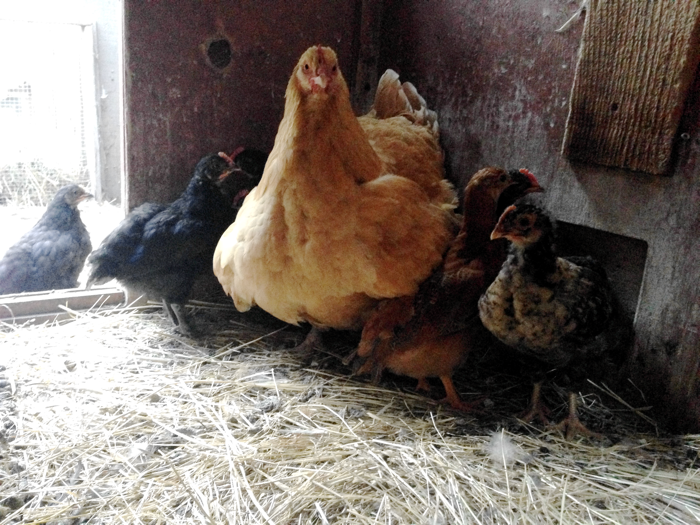

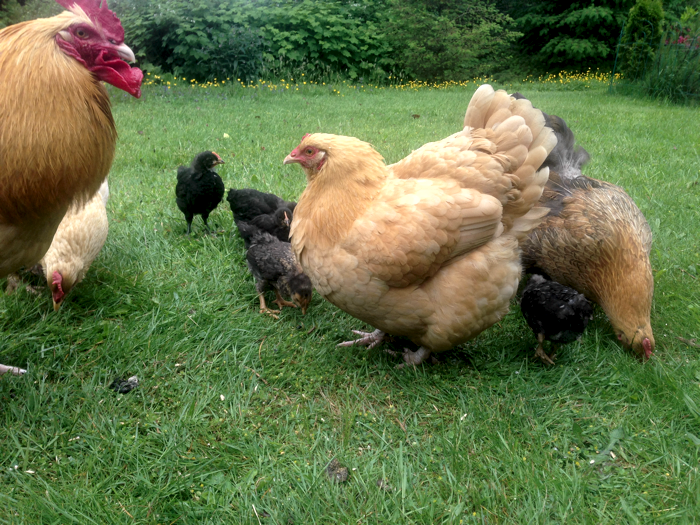
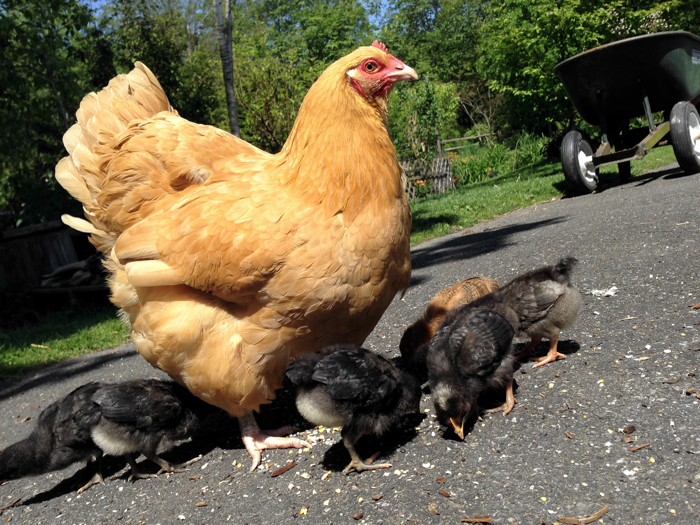
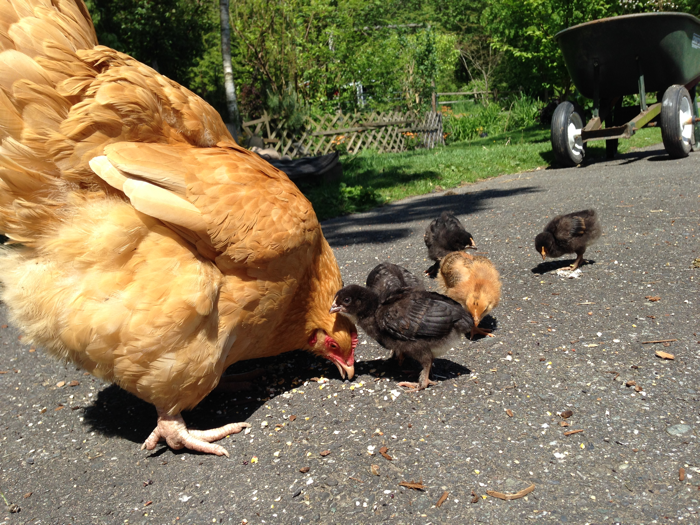
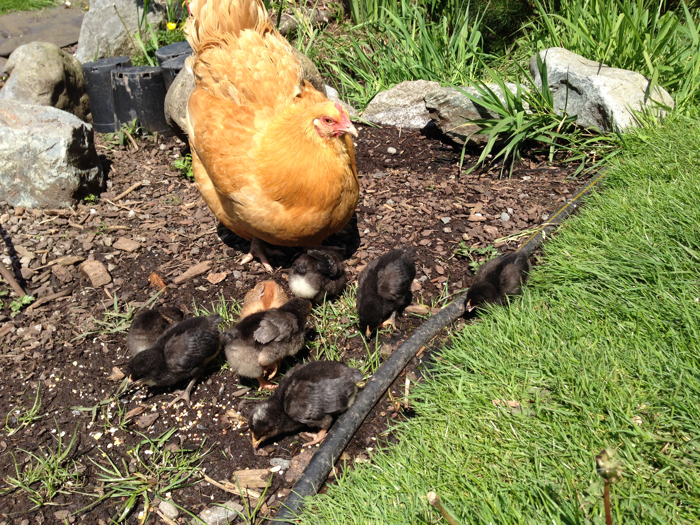
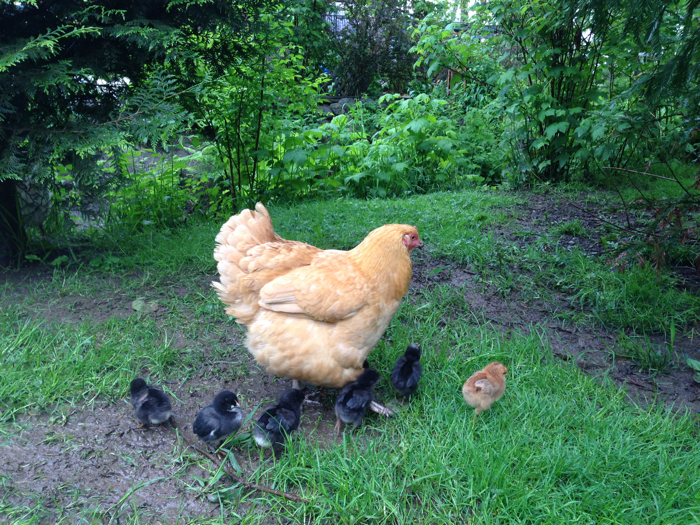
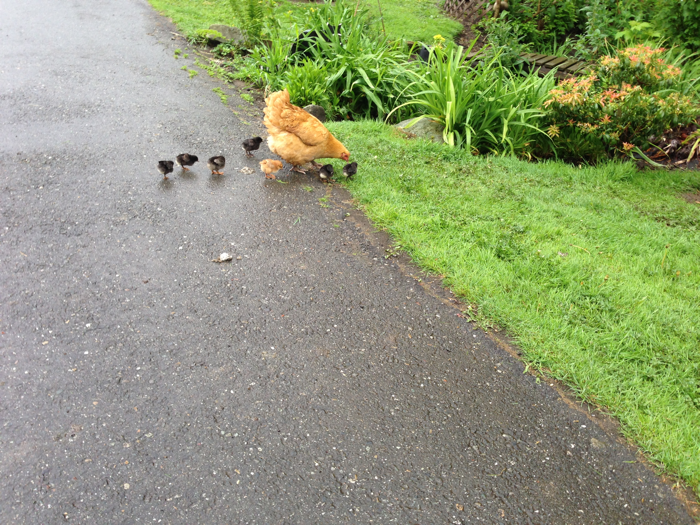
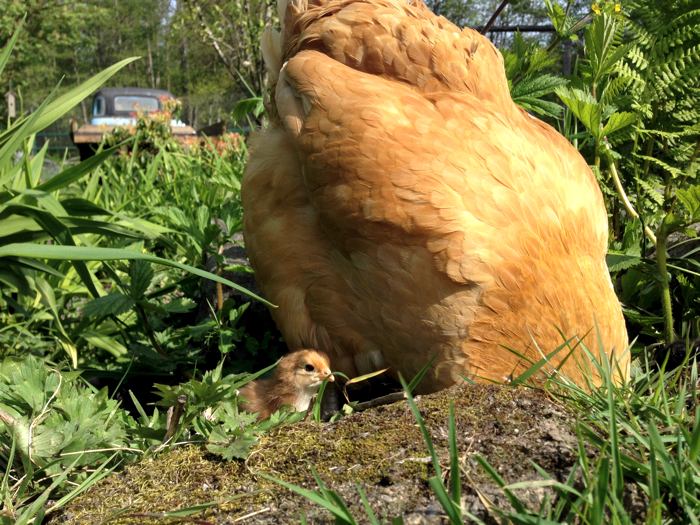
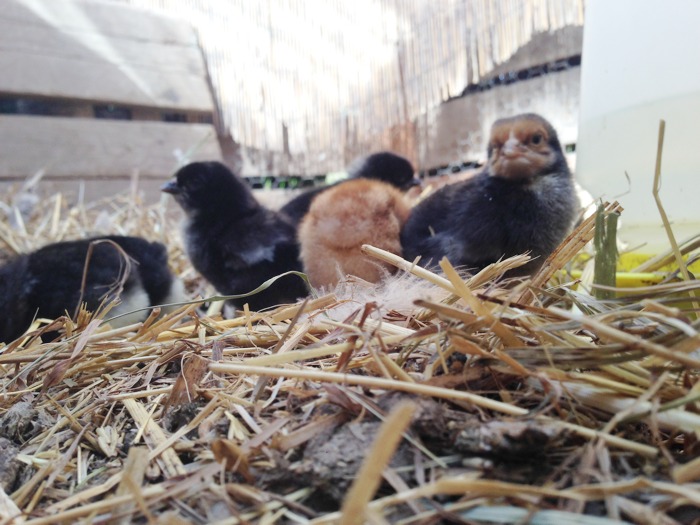
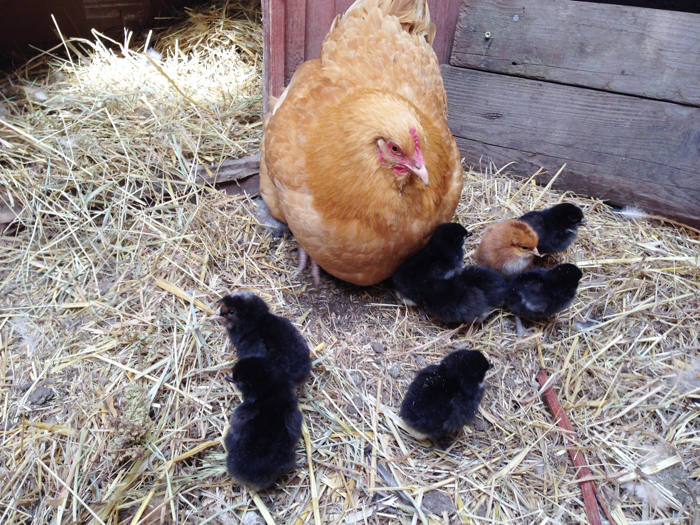
Comments
3 responses to “40 Days of Love and Care”
-
Are you actively selecting for broodiness (or any other traits)? I am — finally — a new backyard chicken raiser and the biggest frustration has been knowing that the birds are unlikely to have a strong instinct to sit on eggs. I have tried to optimize my chances of getting a broody hen but also decided to restrict myself to birds raised locally rather than mail-order chicks. From what I read the odds are not in my favor, especially with such a small number of hens. Domestication can be mutually beneficial, but people seem always to forget responsibility and breed to satisfy whims. I’d like to participate, albeit in a small way, to the solution rather than the problem.
-
I haven’t been selecting for broodiness. When I started raising chickens, I just happened to have picked some breeds which do go broody. The first hen to go broody for me was a Barred Rock. The Buff Orpingtons I have are pretty good mothers. When getting new breeds, I have skipped over breeds which are known not to go broody. I’ve had Rhode Island Reds, Dominiques, and Americaunas go broody. Right now I have a Black Bresse and Americauna sitting on eggs.
-
Thanks. I have just seven birds, so small odds: four Swedish Flowers — three hens and one cock — two bantam Welsummers, and one bantam Ameraucana, who is laying now. I have read that bantams of any breed have some likelihood of brooding since they’re not raised for egg production. I will keep my fingers crossed.
Leave a Reply
You must be logged in to post a comment.